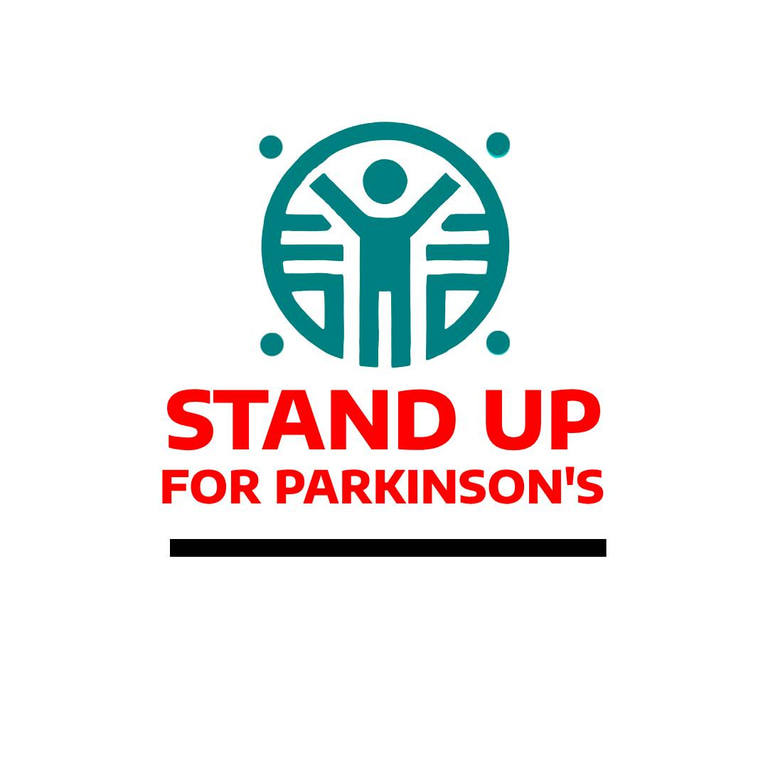Join me in challenging stigma, building awareness, and creating community for over 110,000 Canadians living with Parkinson’s.
From Caregiver to Patient
3/2/2025


I was diagnosed with Parkinson’s disease six years ago at the age of 57. My journey with this condition, however, began long before my own diagnosis. It started with my mother.
My Mother’s Battle with Lewy Body Dementia
My mother was diagnosed with Lewy body dementia, a condition that shares many symptoms with Parkinson’s. Her decline was slow at first, but over time, it became clear that she needed full-time care. As her son, I stepped into the role of caregiver—a role that would change my life in ways I never could have imagined.
She would often phone 911 because of panic attacks—she felt she couldn't move or breathe. But once she was in the hospital, surrounded by people feeling safe, she would slowly start to feel better and then phone for a ride home. We didn’t know my mother had Lewy body dementia until her final days. We were always told she had 'Parkinson’s-like symptoms,' but doctors never gave us time to ask questions, much less the time of day—they would be down the hall on their way to their appointment before you could ask a question. My mom would ALWAYS say she was 'fine' when asked how she was doing, and here is where I had to speak up for her.
It wasn’t until one night in the emergency room that I refused to take her home, saying that if I did, she would be back in a day or two. Finally, around 4:00 in the morning, her movement specialist was forced to come down and talk to me—luckily, he was on rotation that night. After finally getting a chance to talk to her MDS, he finally suggested, "I think your mother should see a psychiatrist for anxiety and depression." I never knew depression was a symptom of Parkinson’s. That revelation explained part of my own story, but that’s a topic I’ll save for another time.
My mother was once active in clubs, socialized often, and had a great network of friends and always had time for her grandchildren. She never liked taking medication, so it was hard to get her to take her anxiety medication—like most of us, she felt she didn’t need it or could handle it on her own. She was aware of Parkinson Canada’s support groups but, probably like many newly diagnosed individuals, didn’t want to admit to the disease, or she didn’t want to confront others like herself who were farther along in their journey, or sometimes she could be having a panic attack that stopped her from leaving the house. Its hard too say because we never really talked about her symptoms .But Parkinson’s slowly made her withdraw. She didn’t want to go out in public for fear of freezing or having a panic attack. Of course, the more she worried, the worse it got. She didn’t want to embarrass her grandchildren, though they, of course, loved their Nana no matter what. Then again, they only remember her as a person living with Parkinson’s.
I spent countless hours advocating for my mother, trying to make sense of the medical maze we found ourselves in. It was exhausting, heartbreaking, and at times overwhelming, but it also taught me the importance of persistence, patience, and the power of a strong advocate.
A Family History I Didn’t See Coming
Looking back, I now see that Parkinson’s was woven into my family history in ways I didn’t fully understand. My mother didn’t have tremors, but she had a lot of other symptoms that I now know are part of Parkinson’s—constipation, anxiety, restless leg syndrome, small handwriting, hallucinations, nightmares, dropped foot, and reduced executive function. This list is only what I’ve learned to recognize since my own diagnoses. I can guarantee she wasn’t aware of how much her Parkinson’s was affecting her. My grandfather had Parkinson’s listed on his death certificate, but at the time, we assumed his tremors were the result of alcoholism. My paternal grandmother, though never diagnosed, had the characteristic shuffle and stiffness that I now recognize as clear signs of the disease.
The Moment My Journey Changed
Caring for my mother did not prepare me for my own diagnosis, nor did it give me insight into what a person living with Parkinson’s goes through. I believe we both had our heads buried in the sand, both afraid of what the future could bring. My mother had a saying: 'What will be, will be,' so there was no need to worry. I wish I knew now what I didn’t back then. I wish I had sought more knowledge, and better prepared myself for what was to come. When I received my own Parkinson’s diagnosis, I wasn’t entirely surprised, i had noticed a few symptoms.
However, my mother’s experience taught me something crucial: the importance of support, information, and advocacy. I had seen firsthand how isolating these diseases can be, and I knew I didn’t want to navigate my own diagnosis in the dark. That’s why I became an advocate—not just for myself, but for others facing the uncertainty of Parkinson’s.
Why I Advocate Today
My mother’s journey shaped mine in profound ways. Her struggles showed me the gaps in care, the need for education, and the importance of early intervention. Now, as someone living with Parkinson’s, I want to ensure that others don’t feel as lost as she did—or as I once did.
This is why I focus on early-stage resources, why I speak up about the realities of this disease, and why I believe in breaking the stigma. Parkinson’s is a journey, and no one should have to walk it alone.
I share my story not just to reflect, but to connect. If you’re on a similar path—whether as a caregiver or as someone living with Parkinson’s—I hope you know that you are not alone. We are stronger together, and our voices matter. If you or a loved one are facing Parkinson’s, seek out support, ask questions, and don’t be afraid to advocate for yourself. Knowledge is power, and together, we can break the silence and stigma surrounding this disease.
